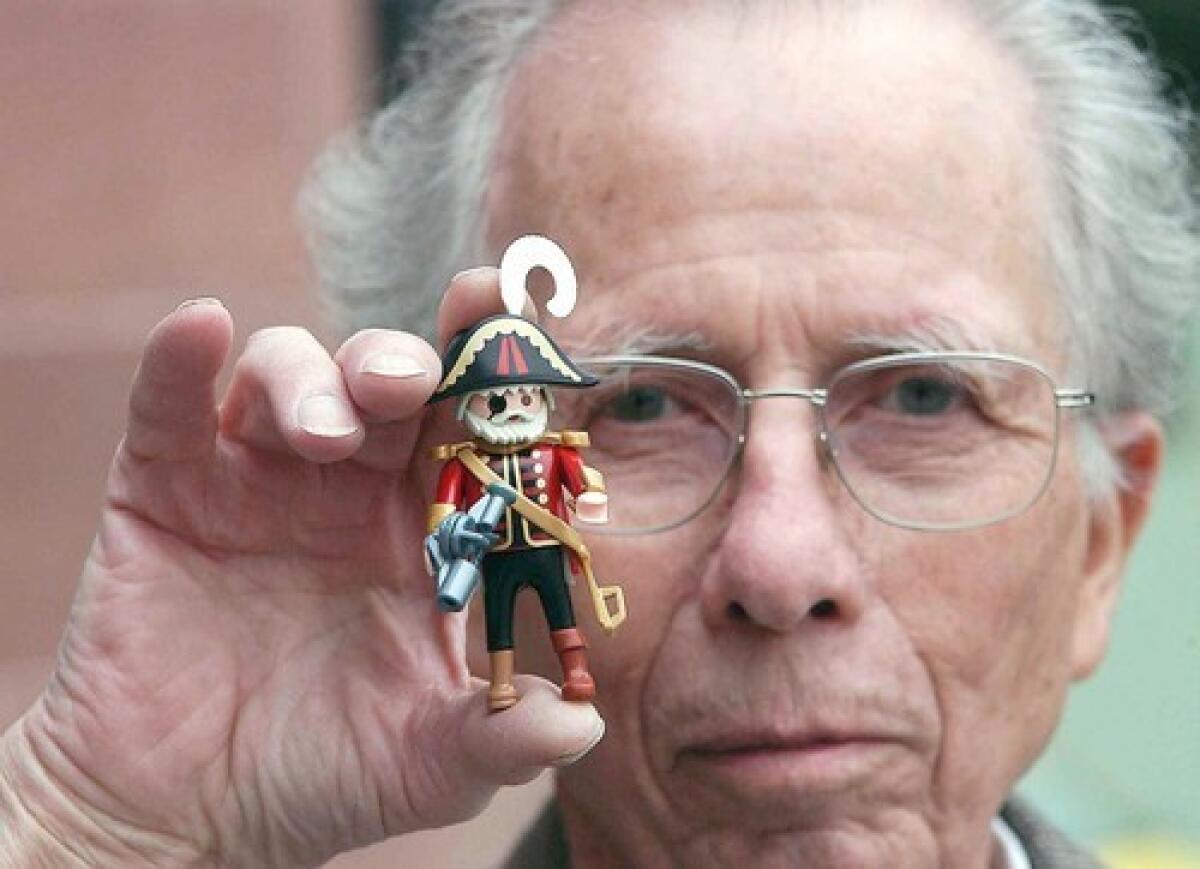Hans Beck dies at 79; inventor of Playmobil toys

- Share via
Hans Beck, the German inventor of Playmobil toys, sturdy action figures designed to encourage imaginative play that quickly became a success after their 1974 debut, has died. He was 79.
FOR THE RECORD: A news obituary in Thursday’s California section of Hans Beck, the German inventor of Playmobil toys, failed to report when he died. It was Jan. 30.
Beck died near Lake Constance in southern Germany, where he moved after retiring in 1998, a Playmobil USA spokeswoman confirmed.
He developed the original simple plastic figures -- a knight, a construction worker and a Native American -- partly as a reaction to the early 1970s oil crisis. Since plastic is made from oil, it became too expensive to make the large plastic toys that his employer, the Brandstatter Group, was known for.
The owner of the German company asked Beck to design a toy system, a series of interlocking parts that could be added to and built upon. When Beck took stock of what was already available, he mainly saw tin soldiers that didn’t bend or move.
Following his toy-making motto -- “no horror, no superficial violence, no short-lived trends” -- Beck devised a “little guy” just under 3 inches tall that fit well in a child’s hand. His figures had moving arms and legs that bent at the hip and wore snap-on clothes.
When the Playmobil figures were unveiled at the Nuremberg Toy Fair in 1974, they were a resounding flop. Role-playing games as a series were a new concept that most adults could not relate to. But one Dutch company ordered a year’s supply.
Since then, more than 2 billion of the figures have been sold in more than 70 countries, according to the Brandstatter Group, Germany’s largest toy producer and the parent company of Playmobil.
The line has greatly expanded to includes fairies, Egyptologists, knights, vikings, dentists and airport-security staff along with the requisite housing or vehicles. The pieces are not cheap -- three Legionnaires can cost $10 while some of the larger set pieces cost over $100.
One of Beck’s favorite pieces was the pirate ship, introduced in 1978.
He was born in 1929 in Thuringia, a central state in Germany, the oldest son of a self-employed trader. His parents divorced when he was young and both remarried. He grew up making toys for his eight younger half-siblings.
After training as a cabinet maker, he was hired as a toy developer at Brandstatter in 1958 and rose to head of design before retiring.
For about a decade, Beck designed piggy banks, child-size tractors and plastic telephones that actually worked from room to room.
In 1971, he started working on the Playmobil line, which was “his masterpiece,” the company said in a statement.
Some of Beck’s favorite Playmobil creations presented slices of history that were deemed politically incorrect, such as a group of 19th century Chinese railroad workers that was never sold in stores.
“When you’re presenting a picture of a time past, you have to show all sides of it,” Beck told the Christian Science Monitor in 1997. But it must be done with “Fingerspitzengefuhl,” he said, employing a German word that translates as “instinctive feeling.”
He is survived by his wife and a son.
More to Read
Start your day right
Sign up for Essential California for the L.A. Times biggest news, features and recommendations in your inbox six days a week.
You may occasionally receive promotional content from the Los Angeles Times.





